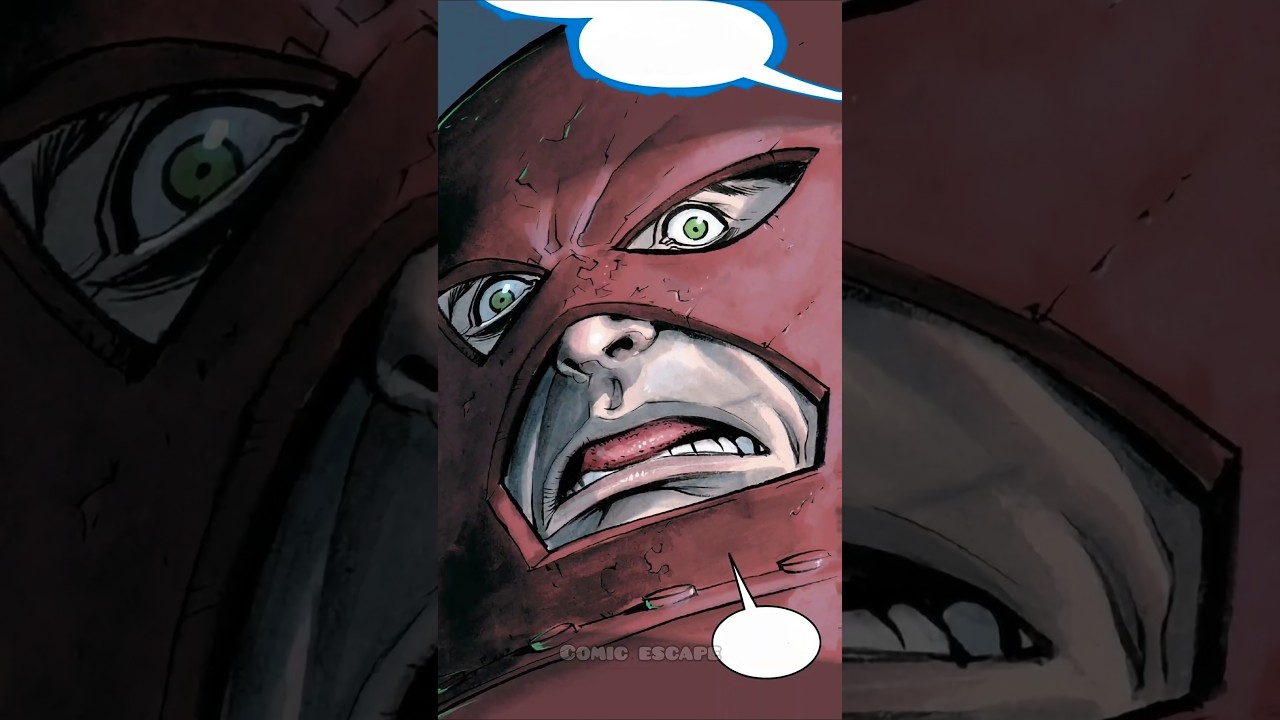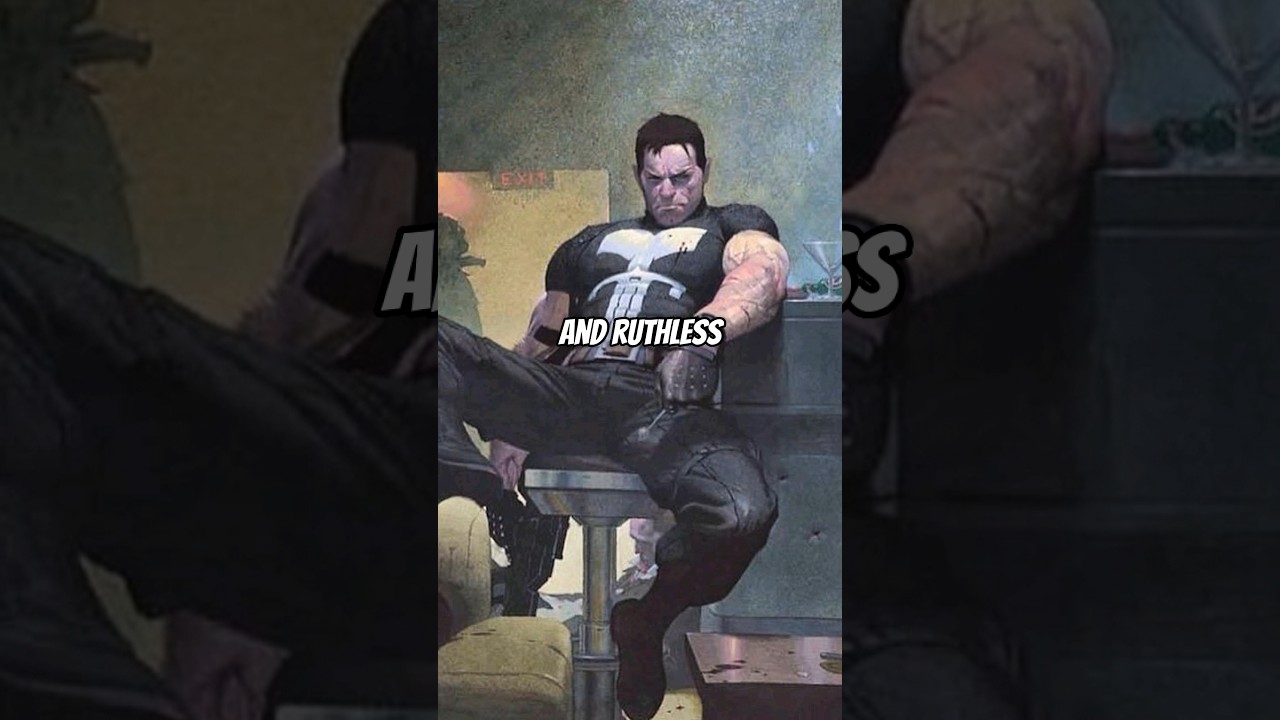In the vast universe of cinema, few characters embody the tension between justice and revenge as fiercely as the Punisher. This Marvel antihero made his gripping debut in “The Amazing Spider-Man” #129 back in 1974, where he rapidly became a controversial figure. Unlike your typical caped crusader who thrives on noble ideals, the Punisher doesn’t hesitate to traverse the dark alleys of revenge, utilizing extreme measures that make us question the very essence of justice.
This article unpacks the Punisher’s complex legacy, weaving through various media—comics, television, and film. The discussion flows from his inception and multifaceted characteristics to his sociocultural implications. What makes the Punisher so relatable to a generation that grapples with flawed justice systems? Spoiler alert: It might have something to do with our thirst for retribution in a world filled with “traitors” and “sinners.”
The Punisher: A Symbol of Justice for the Sinners
The Punisher, with his skull emblem boldly displayed, represents a raw, unfiltered approach to justice. After the tragic murder of his family, Frank Castle adopts a ruthless vendetta against those who run rampant in a society that seems to coddle criminals. His mission transforms him into a walking paradox; while he seeks justice for his loved ones, he himself becomes a “sinner” in the eyes of the law.
What distinguishes the Punisher from classic superheroes is his stark willingness to break the rules. Unlike Batman, who adheres to a no-kill policy, the Punisher uses lethal force as his primary means of achieving “justice.” This raises profound questions: Is his brutality justified? Or does it undermine the very ideals he claims to protect? In grappling with this moral ambiguity, audiences find a reflection of the philosophical debates surrounding justice today.
It’s easy to admire the Punisher’s resolve when the law feels insufficient. Yet, there lurks a visceral fear that his extreme methods may resonate too closely with societal frustrations. The rising popularity of vigilante narratives points to a hunger for accountability—especially in times when systems appear to fail us. With this landscape in mind, it’s essential to dissect the numerous adaptations of the Punisher in modern culture.
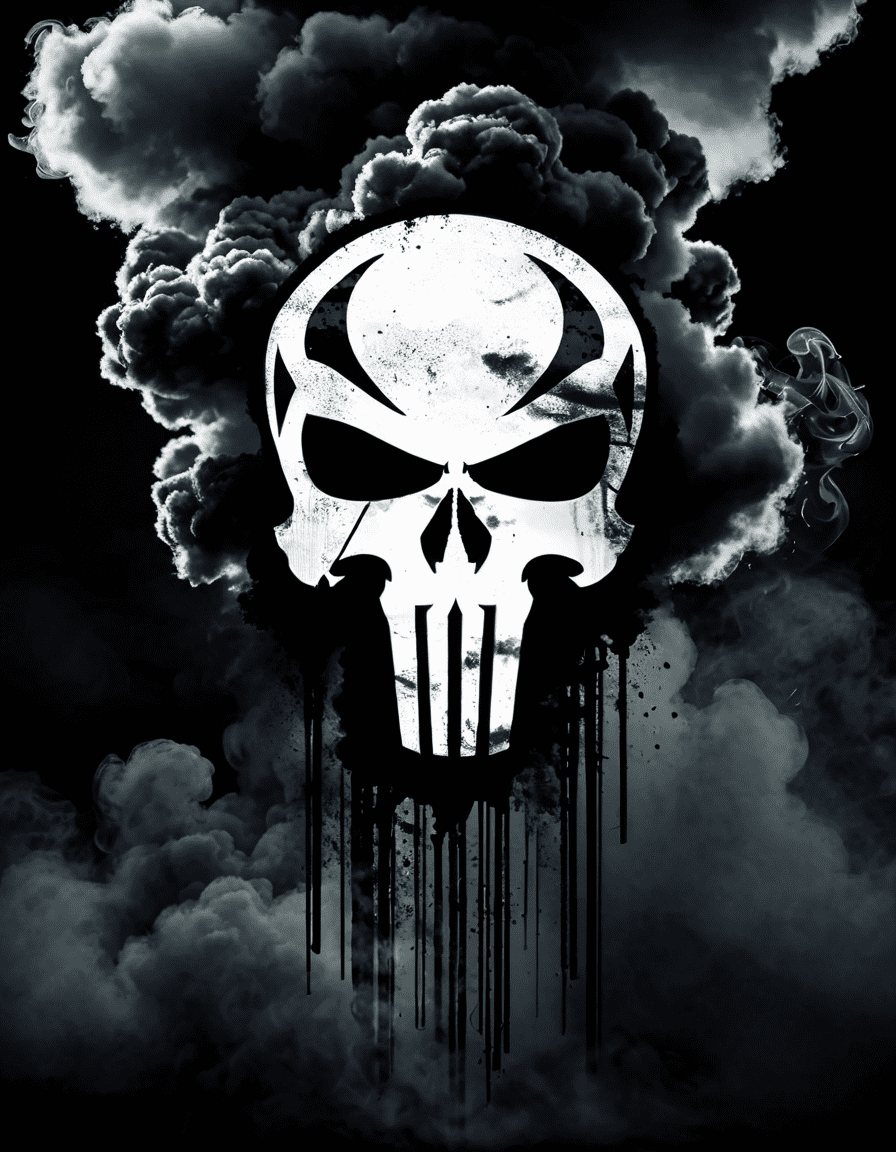
Top 7 Punisher-Inspired Representations in Modern Media
As a cultural icon, the Punisher transcends comic books, carving his niche in various storytelling mediums. Let’s highlight some of the most notable renditions that showcase his fierce legacy.
1. Netflix’s “The Punisher” (2017-2019)
Jon Bernthal stepped into the shoes of Frank Castle in this gritty Netflix series, offering a fresh, nuanced interpretation. This version delves into the psychological aftermath of war and loss, holding a mirror to the societal issues tied to trauma and violence. It challenges viewers to confront their beliefs about justice and punishment.
2. “Daredevil” on Netflix (2015-2018)
Before he got his own series, the Punisher made a striking appearance as a complex antagonist in “Daredevil.” His interactions with the titular hero unfold themes of morality, heroism, and villainy, painting a portrait of a man battling his demonic urges amid chaos.
3. Marvel’s “The Punisher” Video Games
The gaming world jumped at the chance to explore the Punisher’s moral dilemmas. Titles like “The Punisher” (2005) and “The Punisher: No Mercy” (2009) invite players to step into the antihero’s shoes and confront various enemies that represent the moral failings of society. Players experience the thrill of combat but also grapple with questioning their actions.
4. “The Punisher” by Garth Ennis and Steve Dillon (Comic Book Series)
This seminal comic series transformed the Punisher by delving deep into the intricacies of his violent vendetta. Sharp illustrations blended with gritty storytelling highlight the dichotomy of vengeance in modern society.
5. “Punisher: War Journal” – A Critical Exploration of Identity
This series dives into Frank Castle’s psyche, showcasing how he views himself as the ultimate “sinner.” The stories reflect a deeply-felt struggle between vengeance and forgiveness, making readers contemplate how far one should go in the name of justice.
6. “Punisher: The End” – A Reflection of Finality
In a poignant exploration of legacy, “Punisher: The End” becomes a platform for Frank Castle to face the consequences of his actions. It’s a narrative that’s chilling yet illuminating, forcing the character—and readers—to think deeply about the path of retribution.
7. Pop Culture Merchandising and Branding
The ubiquitous Punisher logo permeates various merchandise; it’s found on everything from clothing brands, like Empyre, to tattoos. However, this commodification raises questions about how society interprets vigilante justice and the ramifications that follow.
The Dichotomy of Justice: Traitors, Sinners, and the Amish Ideals
At first glance, the Punisher and the Amish appear worlds apart. While the Punisher wields aggression as his tool for justice, the Amish espouse non-violence and forgiveness. In a culture increasingly fraught with real-world dilemmas, how do we reconcile these starkly contrasting philosophies?
This dichotomy poses critical questions: Is it possible to pursue justice without descending into revenge? As society evolves and grapples with pain and anger, figures like the Punisher surface as voicing our collective frustrations around justice. The Amish ideals offer a counterbalance that many find controversial yet thought-provoking in this contemporary landscape.
Such contrasts remind us of the delicate interplay between punishment and forgiveness. While the Punisher views “traitors” as deserving of his brand of justice, could the Amish offer a more humane alternative? This ongoing debate remains pivotal in how we address societal ills today.
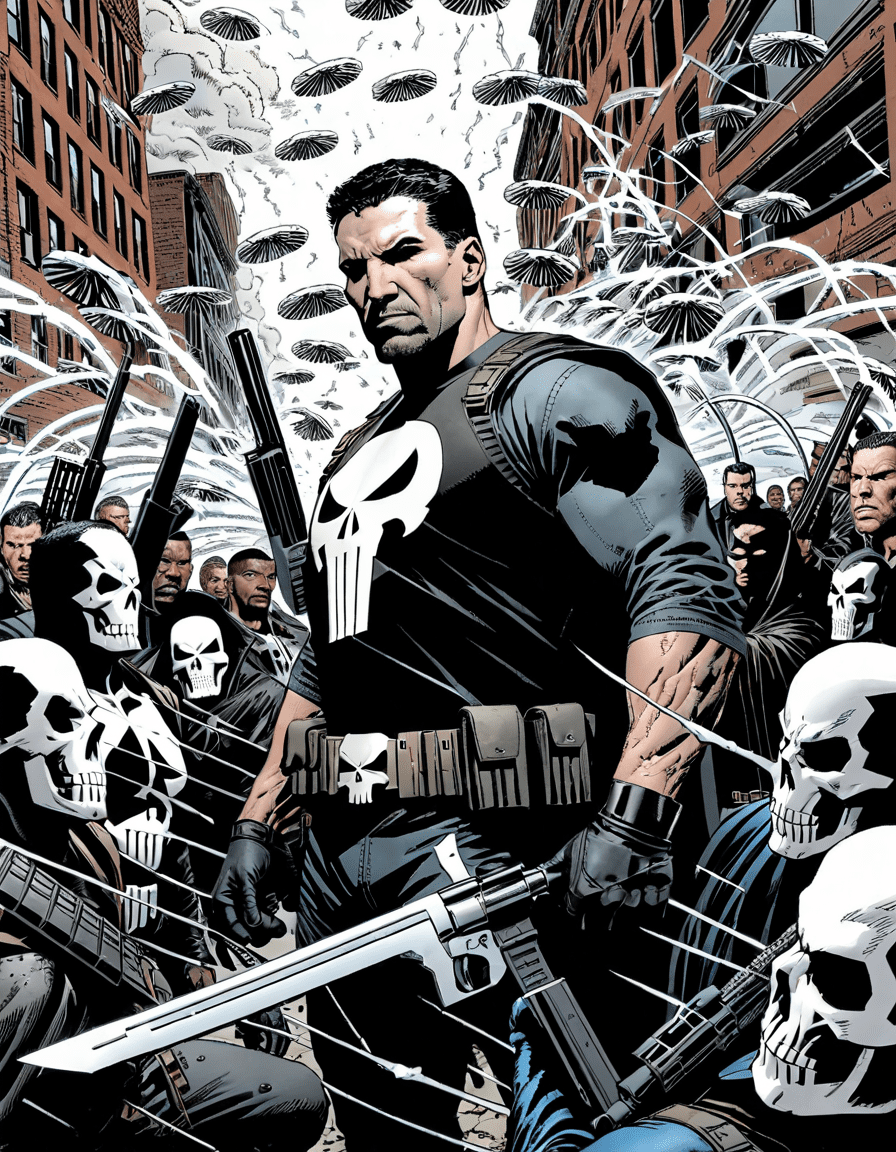
The Cultural Impact of the Punisher: A Reflection on Society
The Punisher’s enduring appeal highlights a societal thirst for justice, reflecting our collective frustrations about corruption and criminality. His narrative resonates strongly as audiences engage with the ethical ramifications of seeking revenge versus the pursuit of justice. With the rise of political and social justice movements, the Punisher’s role takes on new layers.
In times filled with turbulence, the character provides a lens through which to examine our values and beliefs surrounding punishment. The disconnect between the ideals of justice we profess and the behaviors we tolerate spurs ongoing dialogue about the nature of vengeance.
As the notion of vigilantism gains traction, the Punisher makes us ponder: what are the real consequences of taking the law into one’s hands? This reflection urges a reevaluation of traditional justice systems, pushing forth new perspectives that challenge the status quo.
Embracing the Complexity: What the Future Holds for the Punisher
As we embark on the next chapter of storytelling, the Punisher stands at a crossroads. With shifting cultural narratives, there’s potential for reinterpretation that could challenge the archetype of the vigilante. Will future adaptations delve into the implications of his brutal methods, or will they continue to embrace him as a cautionary tale?
This character, with his multifaceted legacy, reflects society’s complicated relationship with justice. The evolution of Frank Castle’s narrative offers a rich canvas to explore both the necessity and consequences of overwhelming aggression.
As the discussion around justice and revenge grows more intricate, the Punisher remains a compelling figure. His fierce legacy beckons us to interrogate our beliefs and choices about how we confront crime, retribution, and the human experience.
In a world rife with moral failures, the Punisher serves as an enigmatic symbol, embodying a spectrum of responses to the age-old questions of fidelity, justice, and retribution. As we consider his fate in cinema and beyond, his narrative will likely persist as a cautionary tale for generations to come.
To explore deeper themes in storytelling and representation, why not check out do The right thing and see how narratives around justice have evolved in film? Or perhaps uncover how characters like Master Shake resonate as societal reflections today. Each story contributes to a broader understanding of our quest for justice in an imperfect world.
Punisher’s Fierce Legacy in Justice and Revenge
The Punisher has been synonymous with vigilante justice since his debut in the 1970s. Interestingly, his character was initially inspired by the tragic backstory of mob victims. This raw portrayal struck a chord with audiences, much like the way classic films like 10 Things I Hate About You resonated with teen angst and rebellion. The Punisher quickly evolved from a comic book antihero into a cultural phenomenon, gripping fans with his relentless quest for vengeance. His unyielding code—where justice is served outside the law—echoes themes from popular culture, like the trials faced by characters in The Disastrous life Of Saiki k . who navigate their unique dilemmas in an often unruly world.
Did you know that one of the early films featuring the Punisher, starring Dolph Lundgren, was largely overlooked upon its release in 1989? Despite this, it slowly built a cult following, akin to some lesser-known actors like Daeg Faerch, whose roles later gained newfound appreciation. Even the Punisher’s emblem—an iconic skull—has seen numerous interpretations, becoming a symbol for those who identify with his wrathful approach to justice. As fan engagement grew, similar to the devoted followers of Sage Steeles impactful sports commentary, his story adapted across various mediums, keeping pace with societal changes and audience expectations.
Connections to athletes are also apparent in the Punisher’s narrative. Many see a parallel between the Punisher’s determined persona and the grit of renowned teams like Baylor Women’s Basketball. Just as these athletes fight tenaciously on the court, the Punisher battles the criminal underbelly, showcasing a relentless drive. Meanwhile, the character’s enduring appeal can be likened to how some iconic personas, like Cactus Jack, have redefined their respective fields through their distinct style and fierce loyalty to their craft. As fans engage in conversations about the Punisher today, they also find themselves participating in varied rankings and discussions, echoing the sentiments found in a Rub Ranking—measuring the intensity and complexity of heroes and their motivations.
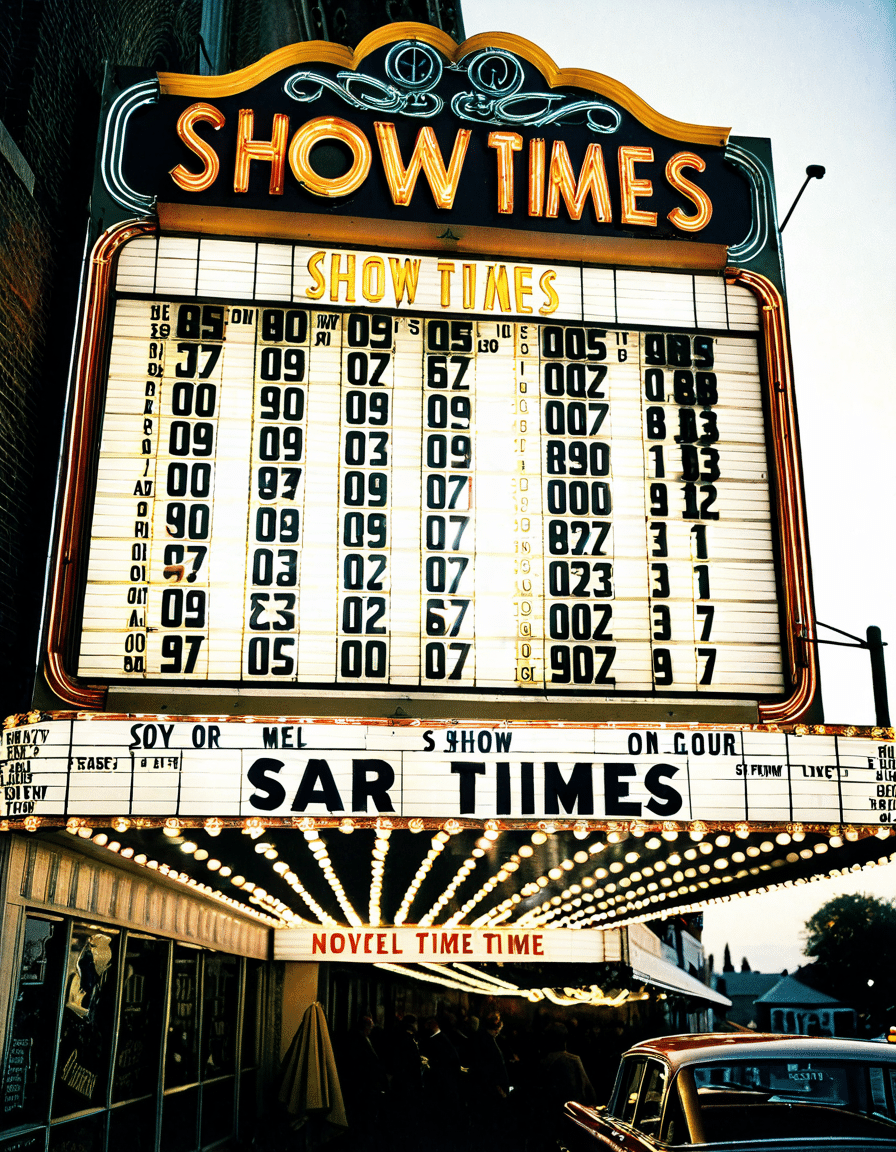

![Punisher Hammer Fight Scene | The Punisher (1x1) [HD]](https://www.cinephilemagazine.com/wp-content/cache/flying-press/845bb10c513e2e9070146479d91b6b9e.jpg)
